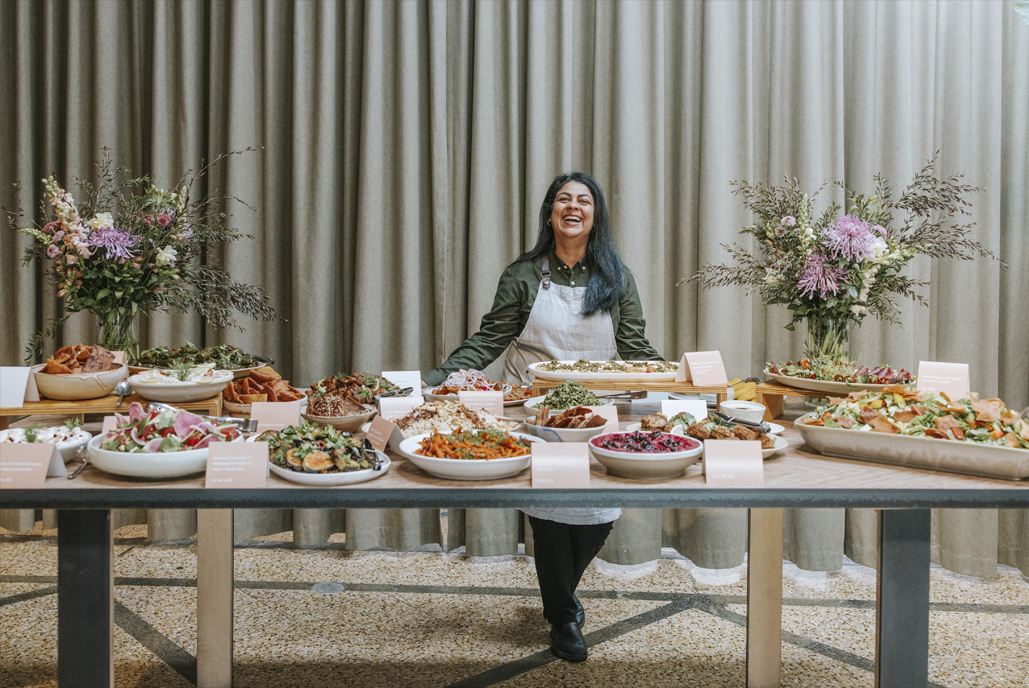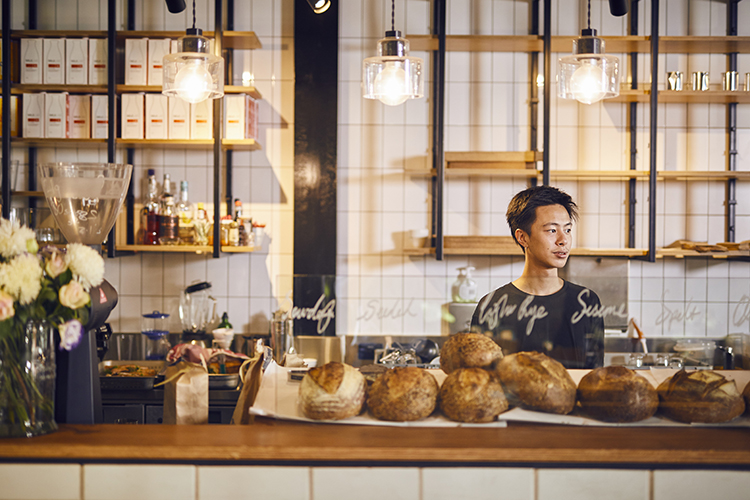
The name Jamie Forsyth might not sound familiar, but chances are you either own one of his products or have used one in your lifetime. As co-founder of KeepCup, Jamie is well versed in reusables and in his ongoing mission to get rid of single use packaging and waste, has started Returnr – a range of containers that can be used to substitute single use packaging.
Launched in 2021, Returnr has two components: Returnr Marketplace is a household grocery service, a single place where customers can access hundreds of products in reusable and returnable packaging, delivered to your door. Customers buy products in the containers, put them in the cupboard and, when they are empty, put them on the doorstep to be collected, washed and reused.
“With all services, the dark art of reuse systems is return logistics. We’re focusing on the idea that reusing can be as good a user experience as single use by doing everything as efficiently as possible,” says Jamie. “Every time we deliver to a customer, we pick up, so there’s no return logistic cost. It’s the same with our suppliers. When our coffee supplier drops off 100 canisters of coffee, we return 100 canisters so there’s no packaging involved at all.”
The second component of Returnr is Workplace Micropool – a series of food storage products developed by Returnr for use in the workplace. An organisation can select a pre-configured set to suit its team, including reusable cups, bowls and containers of all sizes. With something to replace all takeaway food and drink packaging, workplaces can start to implement reuse and slowly eliminate all takeaway packaging waste.
“We consider single use packaging to be pollution. I call it ‘zombie packaging’, it’s packaging that just won’t die,” says Jamie. “All around the world we bury it, we burn it, we throw it in the ocean, but it’s not inert, it degrades in a way that it stays in its primary polymer form, which hangs around for most of our lifetimes.”
It’s in commercial buildings that the Workplace Micropool model can really thrive as building management, tenants and food retailers can work together to enable the ecosystem to work at its best. Businesses can subscribe, buildings can promote the service and hospitality retailers can provide discounts on items served in Returnr containers, from sushi and salads to juices and poke bowls.
“Food retailers love it because they don’t have to pay for packaging, which is expensive, and they also don’t have to manage it because it’s the users’ responsibility”, says Jamie. “Environmentally it’s a really powerful execution because there’s a container for almost every type of food and drink, which means there’s a wider pool of single use packaging it’s going to replace.”

From the planet to people, STREAT is a social enterprise dedicated to helping young people in crisis. Working at the “really hard end” of the welfare system, young people who often face no other options are referred from prisons, detox centres, homelessness services, crisis mental health facilities or schools to start their training and employment journey in one of STREAT’s hospitality programs.
STREAT CEO and co-founder Bec Scott discovered the social enterprise business model as a way of “combining something you’re passionate about with a potential way of addressing that issue.” After years of research and planning, STREAT finally opened its arms to its first young people in 2010 and today, a young person can train to become a barista, chef, baker or even a horticulturalist in one of STREAT’s training programs, with an employer lined up at the end.
“Where most traditional business and major corporations think about ESG (Environmental, Social and Governance) as an add-on, a social enterprise is a business that puts people and planet at the heart of why they exist,” explains Bec. “Our business model is consciously designed to embed social and environmental change. It’s not the stuff that happens around the edges to tick a box. In our case, we run hospitality businesses but they’re there to provide lifechanging opportunities for marginalised young people, not just to feed and caffeinate Melburnians.”
STREAT has a portfolio of hospitality businesses, from an artisan bakery to cafes around the city. And, while a STREAT café might look like any other, its entire operation is geared towards creating training and employment opportunities for young people facing real challenges. “We’re trying to stop the cycle of disadvantage”, explains Bec. “We tailor a young person’s journey with us based on their needs. We have clinical and forensic psychologists, youth workers and social workers embedded in our hospitality team, so we’re working on personal issues as well as vocational skills to ensure a young person’s future looks really different to their past.”

Free to Feed is another Melbourne-based social enterprise providing training, psycho-social support and creating employment opportunities, with a focus on people seeking asylum and refugees. Free to Feed creates shared food experiences that educate and acculturate, encouraging inclusive community attitudes by inviting us all to explore the rich cuisines and cultures of newly arrived people. From community cooking experiences with instructors from across the world, to catering, events and corporate team-building workshops, people of asylum seeker or refugee background use their existing skills and experiences to facilitate community interconnectivity and break the stifling sense of social isolation experienced by new arrivals.
“Basing the employment model around food made sense to me”, says Loretta Bolotin, who co-founded Free to Feed with her husband Dan, who’s own parents were refugees, in 2015. “In all the refugee communities I’d worked, there was always passion and pride around sharing food, and the food was always exciting.”
What started as a little pop-up cooking school was embraced by the community and the pair recently opened their new event space in Melbourne’s Fitzroy North to host cooking experiences, creative workshops and its empowerment, communication and leadership program.
“Our nine-month program draws from best practice, research and our own experience working with people from asylum-seeking and refugee backgrounds who have passion and skills in food,” explains Loretta. “It does not prescribe a particular future pathway; instead, it nurtures and supports participants’ exploration of the connective, expressive and advocacy power in the Australian community.” Free to Feed also provides a 12-month Commercial Cooking, Training & Employment Program where participants spend 12 months in its commercial kitchen and graduate with a Cert 3 in Commercial Cookery from Box Hill Institute.

Both Free to Feed and STREAT demonstrate the power of food, culturally and socially, as a pathway to the rehabilitation or assimilation of people into a community. Acutely important and symbolic for people who have been separated from their home country, food can also provide an opportunity to change your life. Six months after completion, 76 percent of STREAT graduates are still in employment, education or training and, with less than 1 percent government funding each year, STREAT has saved governments (State and Commonwealth) $49 million through its holistic support model.
“We’re essentially a training institution, a youth centre and a hospitality portfolio in one, so the extra complexity of our business model keeps us on our toes, but I wouldn’t have it any other way”, says Bec. “We’ve got a decade of amazing smiling faces who show us that your starting point in life doesn’t have to define the rest of your journey. The day they start can be the day things start to change.”
More than an iconic Melbourne landmark, 101 Collins Street is where influential businesses exchange exceptional ideas.